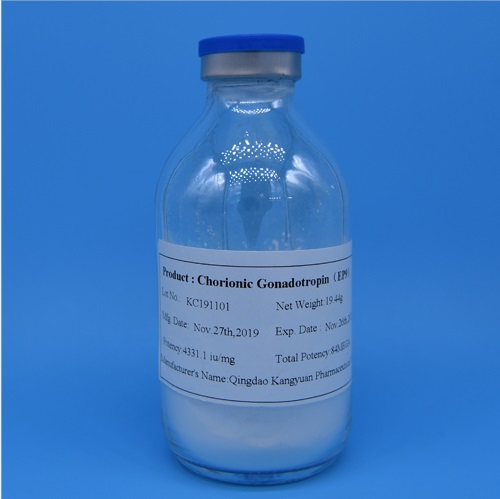In the field of fertility treatment, Human Menopausal Gonadotropin (HMG)
holds significant potential in assisting couples struggling with infertility.
HMG is a hormone medication that mimics the actions of the natural pituitary
hormones commonly released during the menstrual cycle.
HMG consists of both follicle-stimulating hormone (FSH) and luteinizing
hormone (LH), which are essential for the development and maturation of
follicles in women and the stimulation of testosterone production in men. By
utilizing HMG, fertility specialists can regulate the hormonal balance necessary
for successful reproduction.

For women, HMG can be administered to stimulate the development of multiple
follicles before undergoing assisted reproductive techniques such as in vitro
fertilization (IVF) or intrauterine insemination (IUI). The medication
stimulates the ovaries, promoting the growth and maturation of eggs, increasing
the chances of successful fertilization.
In men, HMG can be used to promote the production of testosterone and
stimulate the testes to produce sperm. This is particularly beneficial for
individuals with hormone imbalances or those seeking to improve sperm production
before undergoing procedures such as intrauterine insemination or in vitro
fertilization using donor eggs.
The administration of HMG requires careful monitoring and supervision by
experienced fertility specialists. Patients are closely monitored through
regular ultrasound scans and blood tests to assess the response to treatment and
adjust medication dosage accordingly. This personalized approach ensures optimal
results while minimizing potential risks and complications.
One of the primary advantages of HMG is its versatility in fertility
treatment. It can be used in various protocols tailored to individual patient
needs, making it suitable for a wide range of fertility challenges. Whether it
is addressing ovulation disorders, male factor infertility, or unexplained
infertility, HMG provides an effective option for many couples aspiring to
conceive.
While HMG has shown promising results, it is important to acknowledge that
every case is unique, and success rates can vary. Factors such as age,
underlying fertility issues, and overall health can influence the outcome. It is
crucial that couples seeking fertility treatment consult with their healthcare
providers to discuss the suitability and potential benefits of HMG in their
specific circumstances.
In conclusion, Human Menopausal Gonadotropin (HMG) plays a crucial role in
enhancing fertility treatment options for couples facing infertility challenges.
By closely emulating the natural hormonal processes in the body, HMG supports
the development and maturation of follicles in women and promotes testosterone
production and sperm development in men. Under the guidance of experienced
fertility specialists, HMG offers versatility and personalized treatment plans,
increasing the chances of successful conception. It is an invaluable tool in
unlocking possibilities and bringing hope to those on their journey to
parenthood.